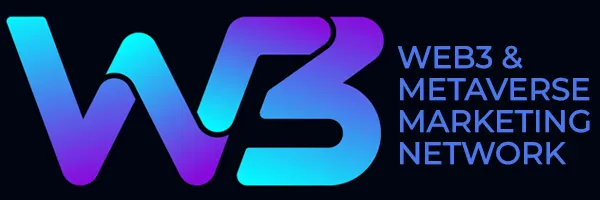The metaverse is a rapidly evolving digital world that promises to revolutionize the way we interact with each other and the world around us. One of the key technologies that is powering the metaverse is digital twins.

What is Digital Twins?
Digital twins are virtual representations of real-world objects and systems. They are created using data collected from sensors and other sources, and they can be used to simulate, analyze, and control physical objects and systems in real time.
Digital twins have the potential to transform metaverse marketing in a number of ways. For example, they can be used to create immersive virtual experiences that allow customers to interact with products and services in a whole new way. They can also be used to collect data about customer behavior and preferences, which can then be used to personalize marketing campaigns and improve the overall customer experience.
Here are a few specific examples of how digital twins can be used for metaverse marketing:
- Create virtual product showcases. Digital twins can be used to create virtual versions of physical products that customers can explore and interact with. For example, a car company could create a digital twin of its latest car model that customers could use to customize the car to their liking and take it for a virtual test drive.
- Host virtual events and demos. Digital twins can be used to create virtual spaces where businesses can host events and demos for their customers. For example, a software company could create a digital twin of its office building where it could host virtual product demos and training sessions for its customers.
- Provide personalized customer experiences. Digital twins can be used to collect data about customer behavior and preferences. This data can then be used to personalize marketing campaigns and improve the overall customer experience. For example, a clothing retailer could use digital twins to track the clothes that customers try on in virtual stores. This data could then be used to recommend similar clothes to customers when they shop in the real world.
The metaverse is still in its early stages of development, but it is clear that digital twins have the potential to play a major role in transforming metaverse marketing. Businesses that are able to leverage digital twins effectively will be well-positioned to succeed in the metaverse.
Here are a few tips for businesses that are looking to use digital twins for metaverse marketing:
- Start by identifying your goals. What do you hope to achieve with your metaverse marketing campaign? Once you know your goals, you can start to think about how digital twins can help you achieve them.
- Choose the right metaverse platform. There are a number of different metaverse platforms available, each with its own unique features and capabilities. Choose a platform that is well-suited to your specific needs and goals.
- Create high-quality digital twins. Your digital twins should be as realistic and accurate as possible. This will help to create immersive and engaging experiences for your customers.
- Collect and analyze data. Digital twins can be used to collect a wealth of data about customer behavior and preferences. Collect this data and analyze it to improve your marketing campaigns and customer experiences.
Stay up-to-date on the latest trends and developments. The metaverse is constantly evolving, so it is important to stay up-to-date on the latest trends and developments.
This will help you to ensure that your metaverse marketing campaigns are effective and engaging.
Digital Twin Examples
Some brands that have employed digital twins into their marketing strategies include:
- BMW: BMW is using digital twins to create a virtual factory floor where it can simulate and optimize production processes. This is helping BMW to improve the efficiency and quality of its manufacturing operations. BMW is also using digital twins to create virtual showrooms where customers can explore and customize their new cars. This is helping BMW to improve the customer experience and increase sales.
- Nike: Nike is using digital twins to create virtual versions of its shoes and sportswear. This allows customers to try on products virtually before they buy them. Nike is also using digital twins to collect data about customer behavior and preferences. This data is then used to personalize marketing campaigns and improve product design.
- Siemens: Siemens is using digital twins to create virtual representations of its power plants and other industrial facilities. This allows Siemens to monitor and optimize the performance of these facilities in real time. Siemens is also using digital twins to train employees on how to operate and maintain its equipment. This is helping Siemens to improve safety and efficiency.
These are just a few examples of how digital twins can be used for metaverse marketing. As the metaverse continues to develop, we can expect to see even more innovative and creative uses of digital twins for marketing purposes.
Digital Twin Solutions
If you are looking to implement digital twins into your marketing, they services can be provided by different types of companies including:
- Technology companies: Many of the leading technology companies, such as Google, Microsoft, Amazon, and IBM, offer digital twin platforms and services. These companies provide the tools and infrastructure that businesses need to create and manage digital twins.
- Consulting firms: A number of consulting firms offer digital twin consulting services. These firms can help businesses to identify the right digital twin solutions for their needs, develop and implement digital twin strategies, and integrate digital twins with their existing business systems and processes.
- System integrators: System integrators can help businesses to deploy and manage digital twin solutions. They can also help businesses to integrate digital twins with their existing systems and processes.
- Boutique digital twin companies: There are also a number of boutique digital twin companies that offer specialized solutions and services. These companies can help businesses to develop and implement digital twins for specific industries or applications.
Here are a few specific examples of firms that are involved with digital twins:
- Accenture: Accenture is a global consulting firm that offers digital twin consulting and implementation services.
- AWS: Amazon Web Services (AWS) offers a digital twin platform called AWS IoT Twins.
- Azure: Microsoft Azure offers a digital twin platform called Azure Digital Twins.
- Google Cloud Platform (GCP): GCP offers a digital twin platform called Digital Twins.
- IBM Watson IoT: IBM Watson IoT offers a digital twin platform called IBM Digital Twin Exchange.
- PTC: PTC is a software company that offers a digital twin platform called PTC ThingWorx.
- Siemens: Siemens is a technology company that offers a digital twin platform called Siemens Xcelerator.
These are just a few examples of the many agencies and suppliers that are involved with digital twins. The landscape is constantly evolving, so it is important to do your research to find the right partner for your needs.
When choosing an agency or supplier for your digital twin needs, it is important to consider the following factors:
- Experience and expertise: Make sure that the agency or supplier has experience and expertise in developing and implementing digital twin solutions for your industry or application.
- Portfolio: Review the agency or supplier’s portfolio of work to see what types of digital twin solutions they have developed and implemented in the past.
- References: Ask the agency or supplier for references from previous customers.
- Cost: Get quotes from multiple agencies or suppliers to compare costs.
By taking the time to choose the right agency or supplier, you can ensure that your digital twin project is successful.










